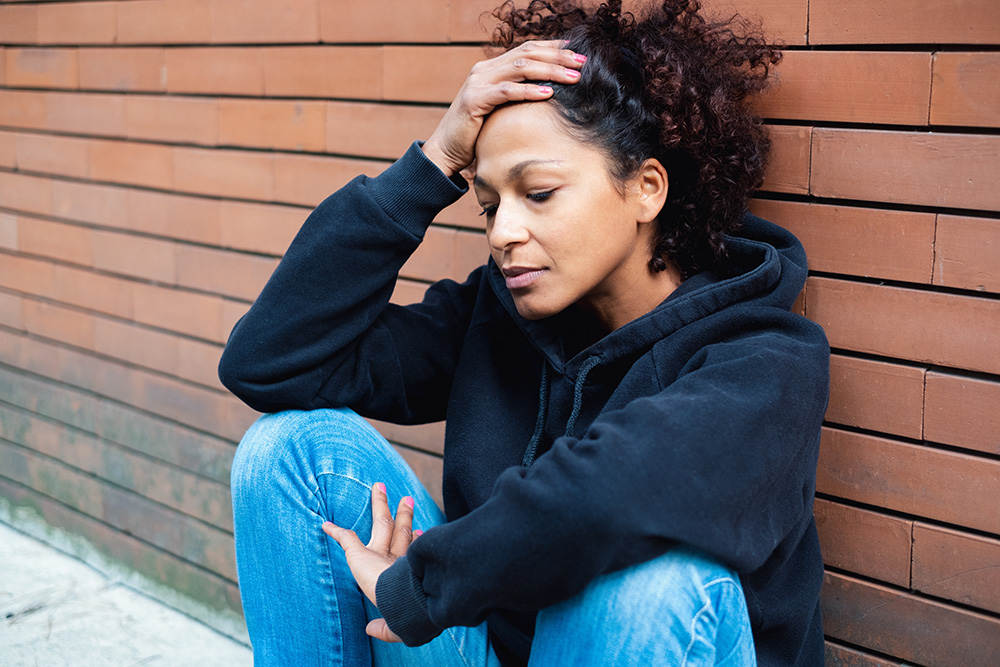Bipolar Disorder And Substance Abuse Treatment
Many people who suffer from addiction also suffer from a co-occurring mental health disorder. This is referred to as a dual diagnosis. Some individuals may find themselves living with bipolar disorder and substance abuse simultaneously. This dual diagnosis requires professional treatment services.
Fortunately, hope is available for those who are suffering from substance abuse and bipolar disorder. Here at First City Recovery Center, we offer treatment for co-occurring disorders. Our dual diagnosis patients can receive the help they need to manage mental health symptoms and overcome addiction.
Table of Contents
ToggleWhat is Addiction?
 Addiction develops as a result of substance abuse. Individuals who use alcohol excessively may develop an alcohol use disorder. Likewise, people who misuse drugs may grow dependent on them. This can lead to the development of drug addiction.
Addiction develops as a result of substance abuse. Individuals who use alcohol excessively may develop an alcohol use disorder. Likewise, people who misuse drugs may grow dependent on them. This can lead to the development of drug addiction.
Contrary to the belief that addiction is a choice, alcohol abuse and drug abuse are diseases. As such, these substance use disorders should be addressed in professional rehab. Those who suffer from addiction should seek substance abuse treatment as soon as possible. Through addiction treatment, individuals can receive the guidance they need to break free from substance use disorder.
What is Bipolar Disorder?
Bipolar disorder (also called manic depression) is a mood disorder. This mental health condition involves the following symptoms:
- Mood swings
- Intense emotional shifts
- Extreme changes in energy levels
Bipolar disorder is characterized by periods of mania and periods of depression. A manic episode involves extreme happiness or excitement. A depressive episode involves severe sadness. Individuals who have bipolar disorder experience manic episodes and depressive symptoms regularly. These bipolar symptoms can continue to intensify if individuals do not receive treatment.
Types of Bipolar Disorder
There are multiple types of bipolar disorder. Two of the main types of this mental illness include bipolar I disorder and bipolar II disorder. A third and milder type of bipolar disorder is cyclothymic disorder.
This disorder is characterized by manic episodes that typically last more than a week. In some cases, these episodes can be so severe that they may result in hospitalization. Symptoms of bipolar depression may also arise in those suffering from bipolar type I. A person may encounter a depressive episode that lasts for two weeks or longer. Some people may have depressive episodes that co-occur with manic episodes or vice versa.
Individuals who have bipolar type II experience depressive episodes and hypomanic episodes. However, this disorder does not usually consist of severe manic episodes like bipolar I disorder. Typically, those who have bipolar II disorder have experienced a minimum of one hypomanic episode and one major depressive episode throughout their life. Individuals who have bipolar type II usually have major depressive episodes and depressive symptoms.
This particular type of bipolar disorder is milder than bipolar disorder I and II. It is characterized by cyclical periods of hypomanic symptoms and depressive symptoms.
How Dual Diagnoses Occur
 In some cases, drug and alcohol abuse can lead to the development of a mental health condition. In other situations, individuals who have a mental illness may develop substance dependence as a result.
In some cases, drug and alcohol abuse can lead to the development of a mental health condition. In other situations, individuals who have a mental illness may develop substance dependence as a result.
The challenge of dealing with co-existing mental health issues and substance abuse is not necessarily in which disorder came first. Instead, one of the main difficulties lies in how the disorders affect one another.
In the case of bipolar disorder and substance abuse, there are multiple possible situations. Some people may abuse drugs or alcohol initially. This substance abuse may eventually cause these individuals to develop bipolar disorder. Developing bipolar disorder as a result of substance abuse can be life-altering. Most people in this situation will require co-occurring disorder treatment.
On the other hand, some individuals may use alcohol or drugs to cope with their bipolar symptoms. While this may feel effective, it will likely only make the bipolar disorder worse. This solidifies the need for co-occurring disorder treatment.
The Importance of Professional Treatment for Bipolar Disorder and Substance Abuse
Individuals suffering from bipolar disorder and substance misuse should receive professional treatment for various reasons. For one, bipolar disorder patients may have a difficult time managing their symptoms while also fighting addiction.
Another reason why treatment is important is the lifelong effects bipolar disorder can have. While treatment doesn’t “cure” mood disorders, individuals who suffer from bipolar disorder can manage their symptoms. Medical and psychological treatment can help with this.
Also, many people who have bipolar disorder have a suicide risk. Personalized, professional treatment is necessary for those who suffer from these co-occurring disorders.
Mood stabilizers and other prescription medications can be helpful, but they won’t address the existing addiction. This is where co-occurring disorder treatment plays a critical role.
Dual Diagnosis Treatment for Bipolar Disorder and Addiction
Those who are suffering from the effects of bipolar disorder and substance abuse can find hope through a dual diagnosis program. Professional mental health and addiction treatment can provide the resources individuals need as they pursue healing and recovery. Here at First City Recovery Center, we offer a dual diagnosis program that can help people living with co-occurring substance abuse and mental disorders.
While you are in addiction treatment here at our facility, we will also treat bipolar disorder in your life. We will equip you with the resources and tools you need to manage bipolar disorder symptoms and overcome addiction. Our mental health and substance abuse treatment programs include the following:
- Medical detox
- Inpatient Treatment
- Outpatient Treatment
- Partial Hospitalization Program
- Intensive Outpatient Program
- Sober Living Program
- Relapse Prevention
Whether you are suffering from alcohol use disorder or drug abuse, we can help you. Our treatment programs for substance use disorders and mental illnesses can assist you on your journey to recovery.
Ending substance use can be difficult. Individuals usually encounter withdrawal symptoms, many of which can be quite uncomfortable. In some cases of withdrawal, the symptoms can even be severe and dangerous. This is why professional detox services are often necessary for those who which to end substance use.
Individuals who are seeking to end drug and alcohol use in their lives can safely do so with medical assistance. A medical detox process detoxifies and cleanses the body from the toxins of drugs and alcohol. With the help of medications and professional supervision, substance use can end safely.
An inpatient addiction treatment program allows people to live at a rehabilitation center. As a result, patients have around-the-clock access to medical assistance and a mental health professional if necessary.
When it comes to dealing with a substance use disorder, it’s important to remember that each case is unique. Some people who have a substance use disorder may require inpatient treatment while others do not.
Inpatient treatment for substance addiction is an intensive approach to recovery. It may not be necessary for everyone who suffers from a substance use disorder. But, it is advisable for those who suffer from severe drug or alcohol dependence.
Those who are struggling with bipolar disorder and addiction may find that an inpatient treatment program is exactly what they need. This intensive rehab program can provide the time and care addiction and bipolar patients require for recovery.
This addiction treatment program allows patients to receive treatment while living elsewhere. People in outpatient care may choose to live at home or in a different, substance-free environment. Outpatient addiction rehab still includes the same beneficial treatment modalities as inpatient treatment. But, it is less intensive than inpatient rehabilitation.
Partial hospitalization programs and intensive outpatient programs are types of outpatient treatment approaches. Both of these programs are offered here at First City Recovery Center!
Again, each person who suffers from addiction and co-occurring mental health disorders has unique needs. So, outpatient addiction rehab may be more effective for those who have less-than-severe addictions. Outpatient care is also often the next step in rehab after inpatient treatment.
A sober living program provides recovering individuals with a place to live during or after treatment. A sober living home is a drug-free and alcohol-free environment. This can eliminate many of the risk factors for relapse.
Relapse prevention skills are incredibly important for those who are working through co-occurring disorders. This is especially true for those working on understanding bipolar disorder in their lives while also overcoming addiction. Relapse prevention plans can help people to stay on the path to recovery.
A relapse prevention plan can include a range of components. It can involve the identification of any risk factor or trigger that might lead to relapse. It might also include a plan to address mental health symptoms such as mood swings, anxiety, depressive episodes, and so forth. Relapse prevention plans can also encourage therapy sessions, further treatment, and other resources for those in recovery.
First City Recovery: Treating Bipolar Disorder and Substance Abuse
If you have bipolar disorder and alcoholism or other substance use disorders, we are here to help you. Individuals who are living with mood disorders in addition to addiction can find hope here. Our dual diagnosis treatment program is equipped to help individuals from all walks of life. We prioritize treating patients as individuals with unique needs. Our facility is an environment where people can feel safe and respected.
Whether you are solely dealing with substance use disorder or you have co-occurring disorders, contact us! Our integrated treatment methods can assist you in your journey to a life that is free from addiction. Your struggle with bipolar disorder and substance misuse does not have to continue. Let us help.
Our compassionate and knowledgeable team is standing by to walk you through the treatment process. Give us a call today and begin traveling down the path to hope and health. We look forward to serving you!

MD, Psychiatrist
Dr. Vahid Osman, MD is a psychiatry specialist in Indianapolis, IN.
Dr. Osman completed a residency at Austin State Hospital. He has over 32 years of experience in Psychiatry & Behavioral Health. He is board certified by the American Board of Psychiatry and Neurology.




